Abstract
The present article discusses the use of computational methods based on generalized estimating equations (GEE), as a potential alternative to full maximum-likelihood methods, for performing segregation analysis of continuous phenotypes by using randomly selected family data. The method that we propose can estimate effect and degree of dominance of a major gene in the presence of additional nongenetic or polygenetic familial associations, by relating sample moments to their expectations calculated under the genetic model. It is known that all parameters in basic major-gene models cannot be identified, for estimation purposes, solely in terms of the first two sample moments of data from randomly selected families. Thus, we propose the use of higher (third order) sample moments to resolve this identifiability problem, in a pseudo-profile likelihood estimation scheme. In principle, our methods may be applied to fitting genetic models by using complex pedigrees and for estimation in the presence of missing phenotype data for family members. In order to assess its statistical efficiency we compare several variants of the method with each other and with maximum-likelihood estimates provided by the SAGE computer package in a simulation study.
Full text
PDF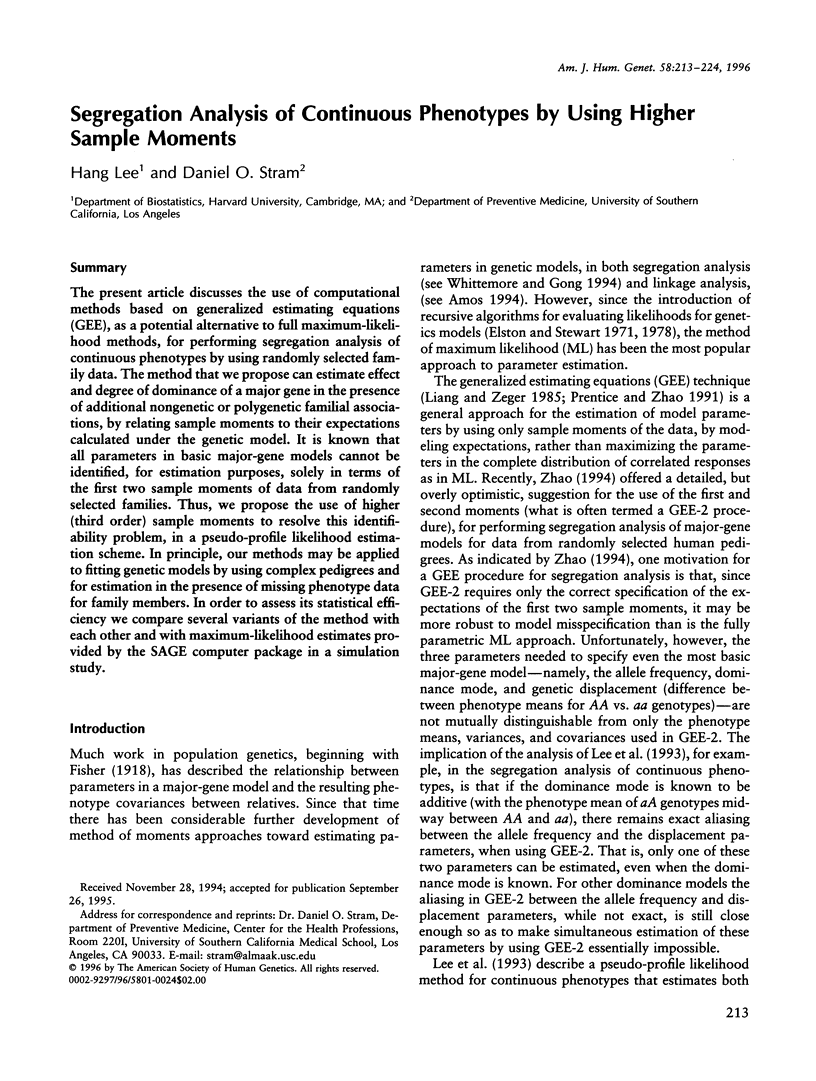
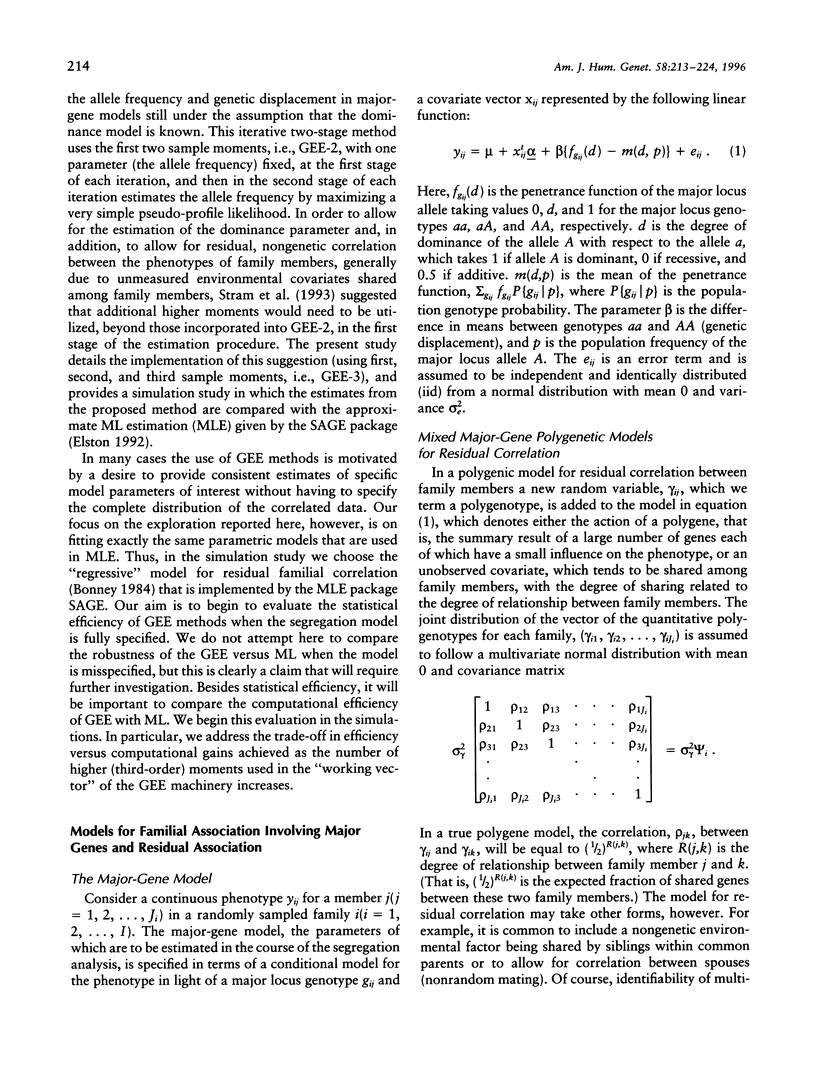
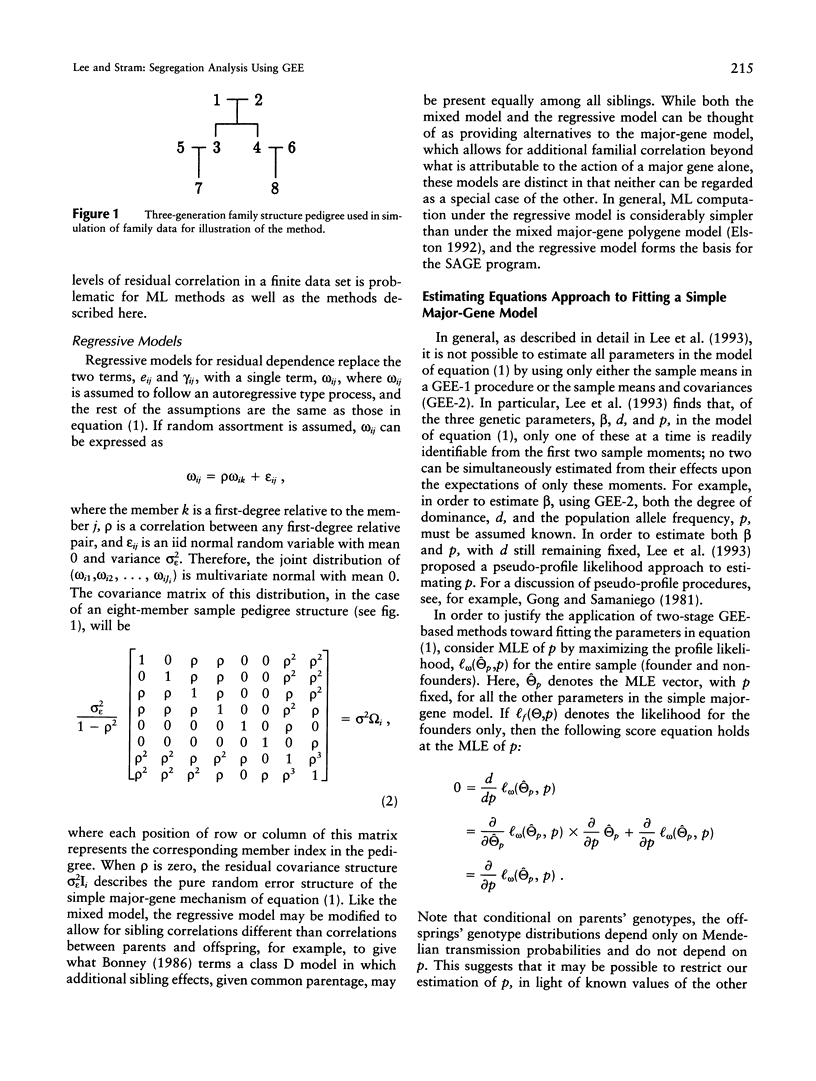
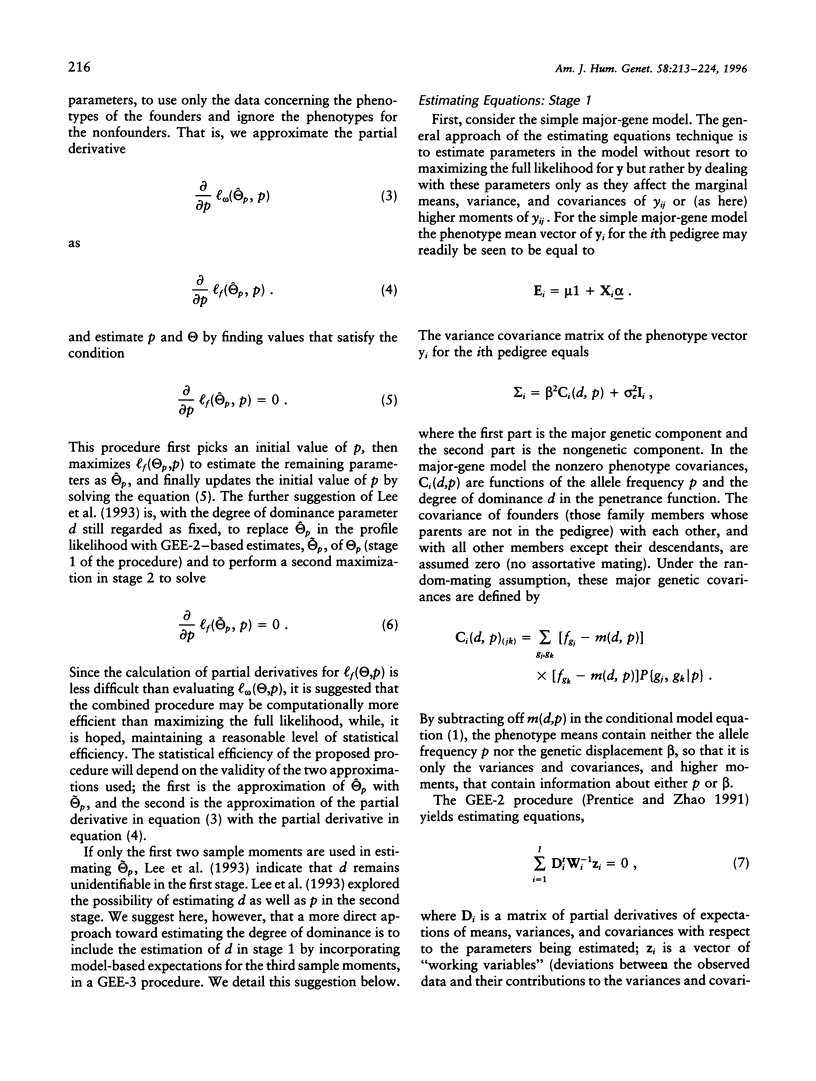
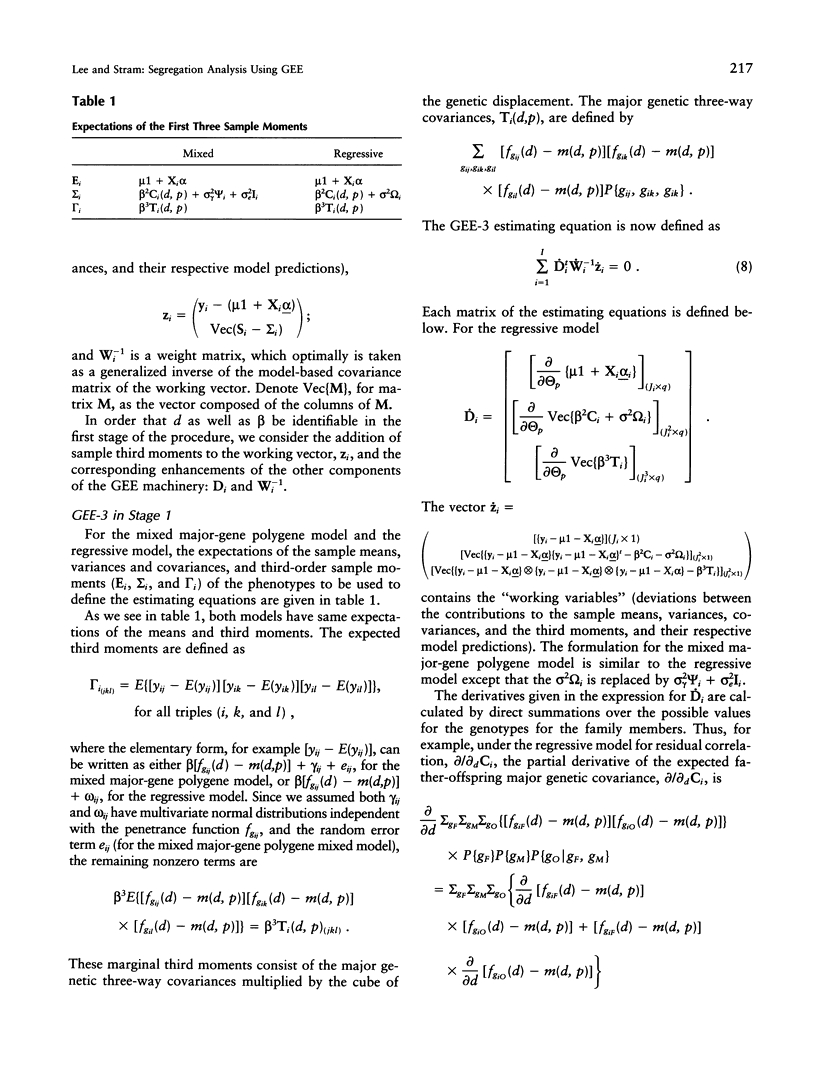
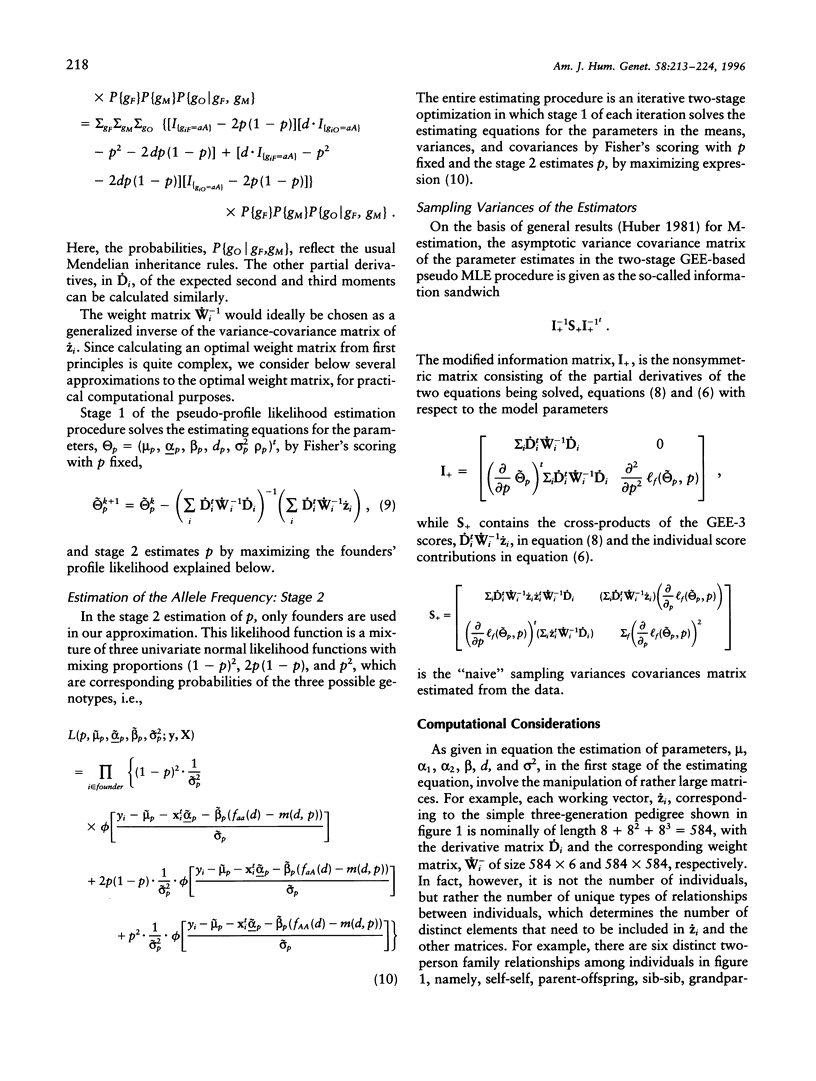
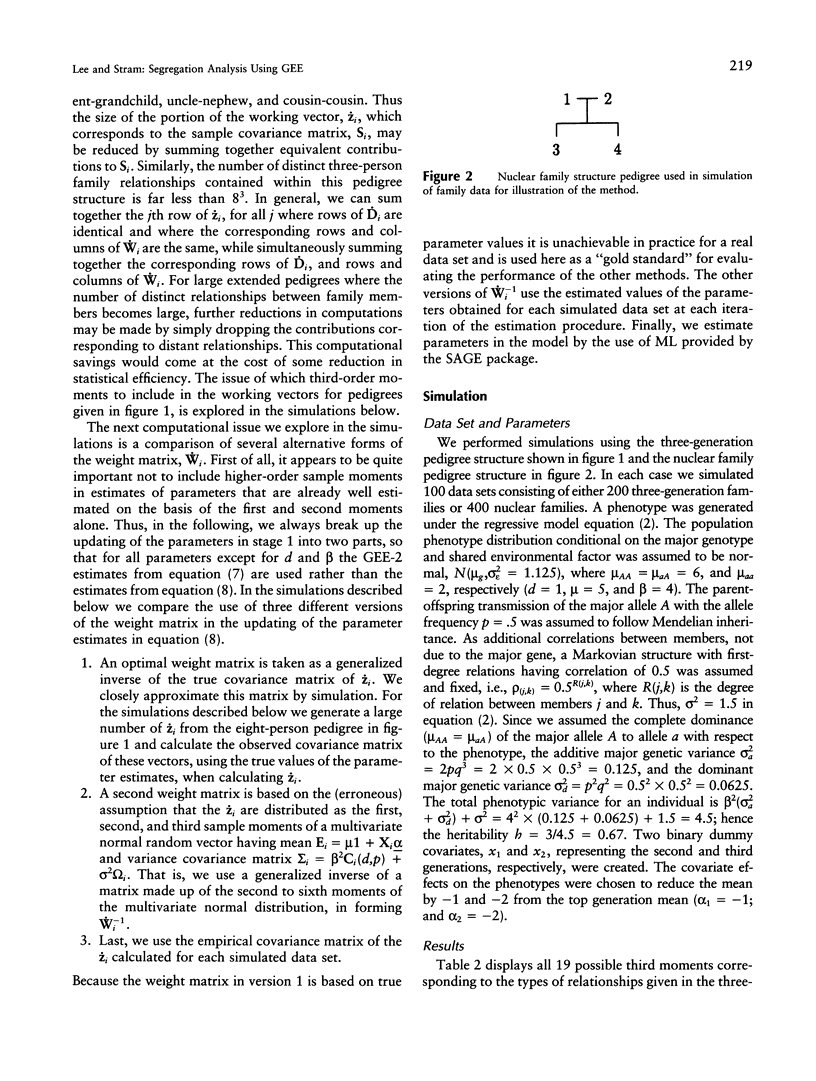
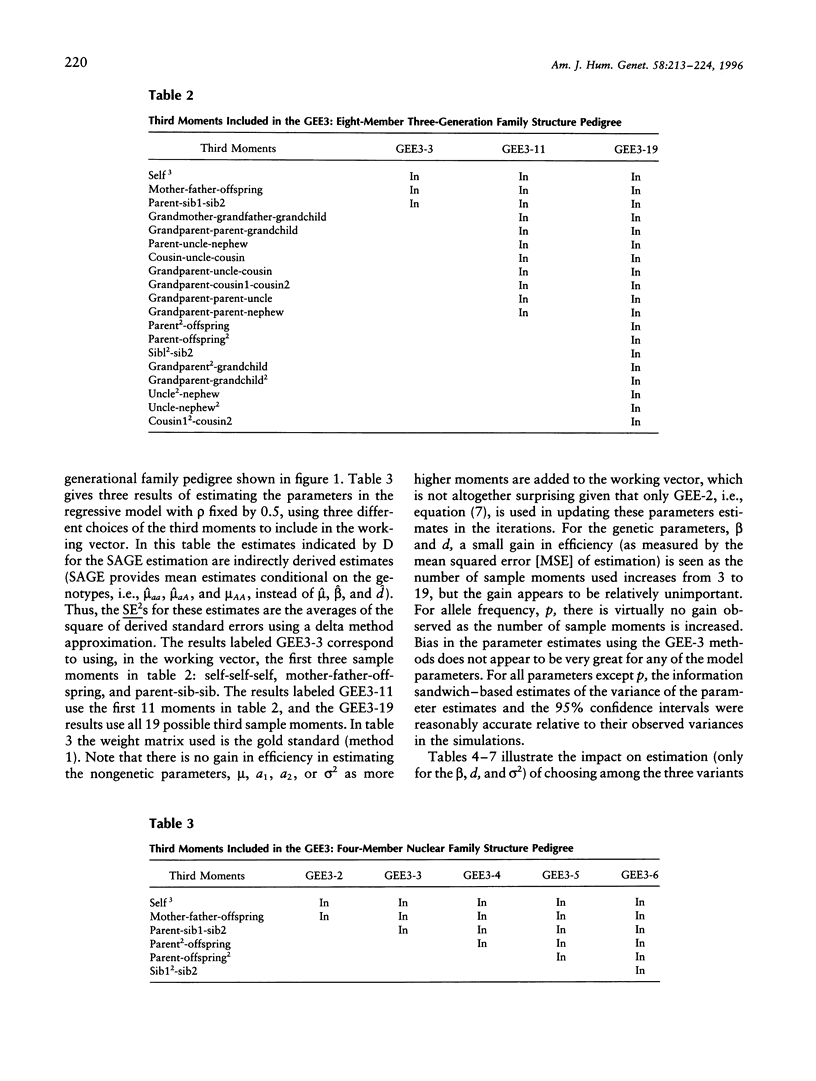
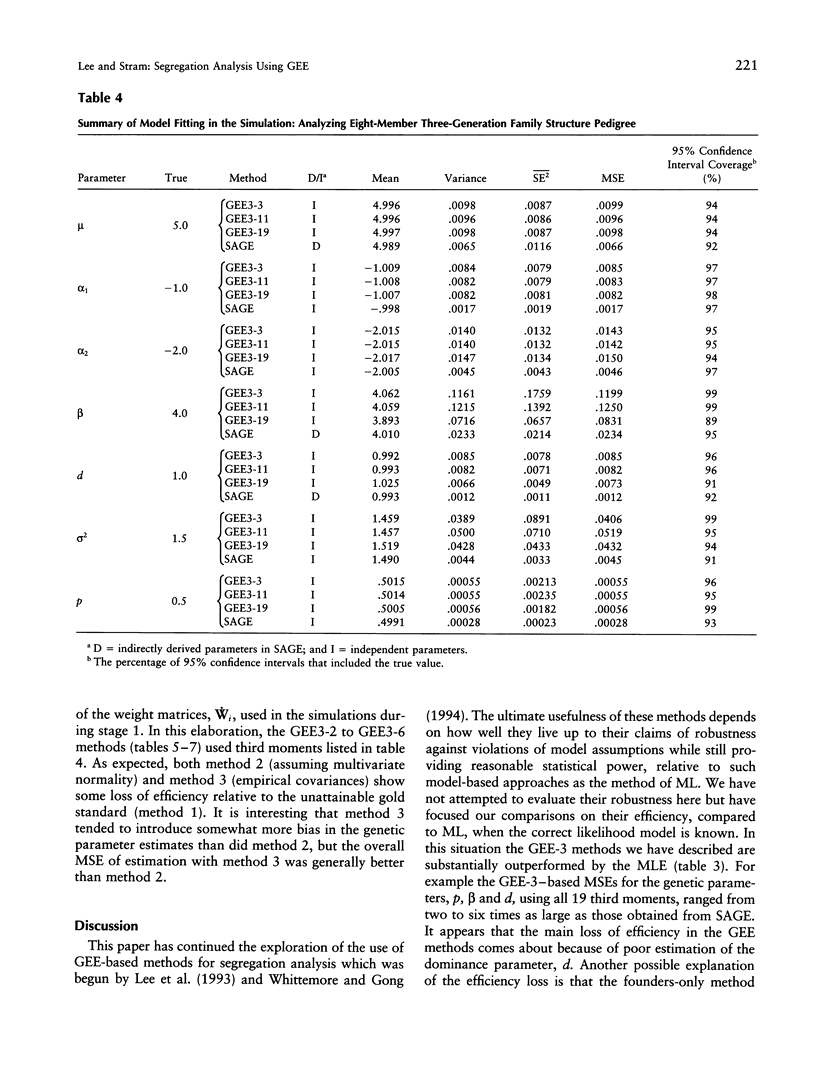
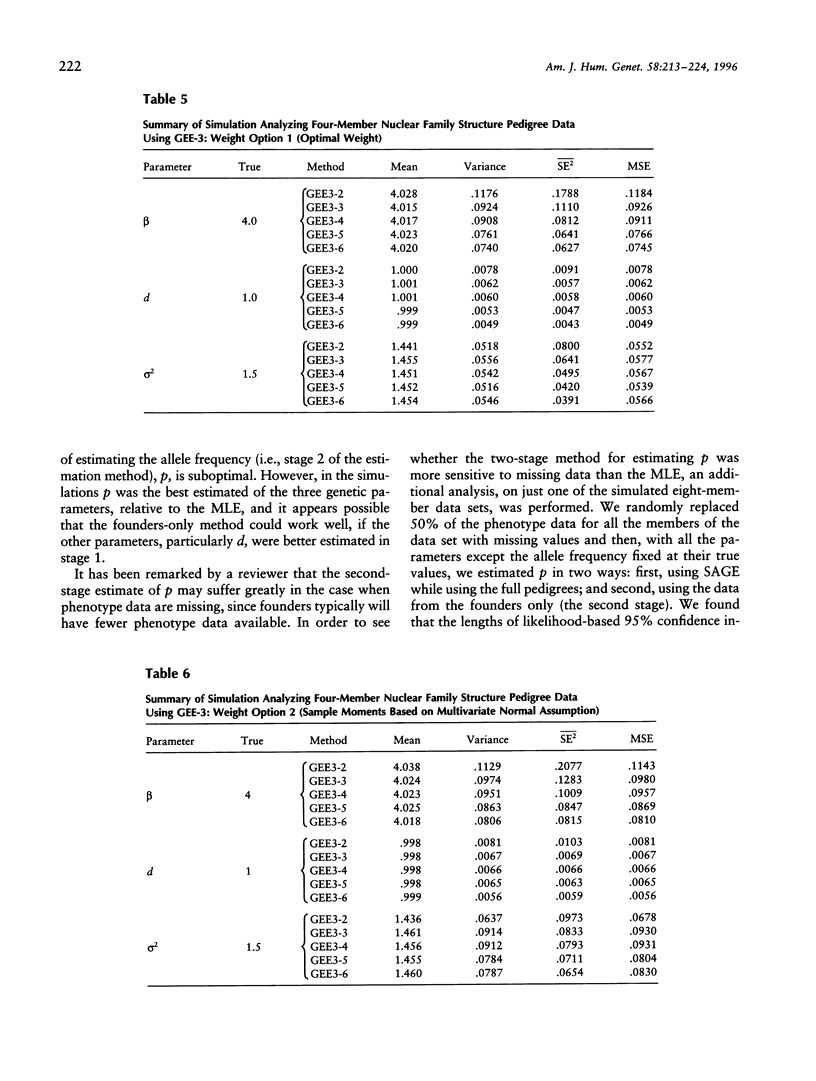
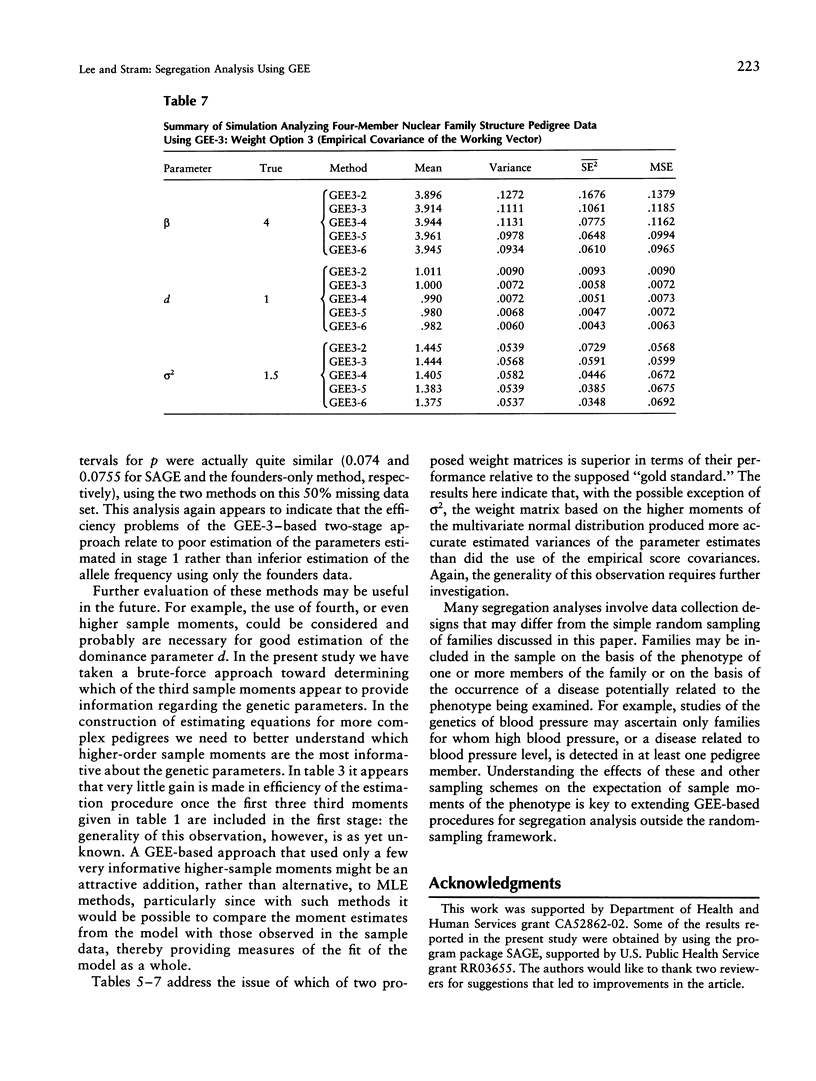
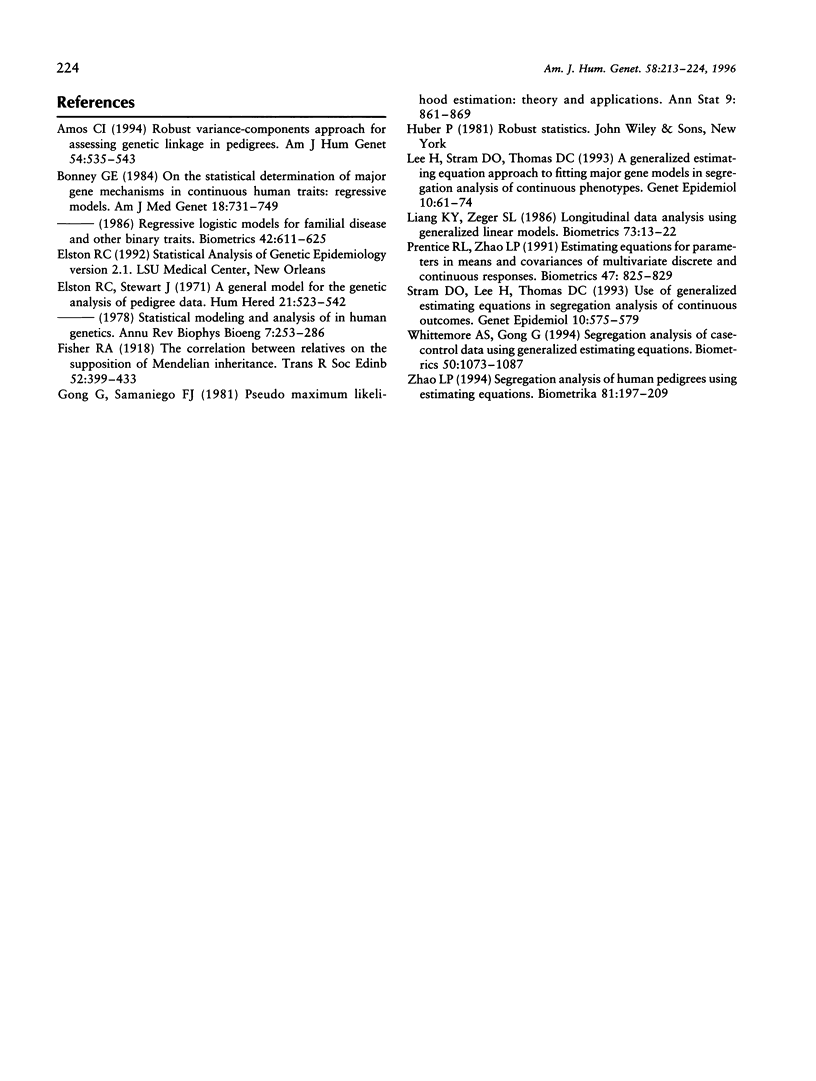
Selected References
These references are in PubMed. This may not be the complete list of references from this article.
- Amos C. I. Robust variance-components approach for assessing genetic linkage in pedigrees. Am J Hum Genet. 1994 Mar;54(3):535–543. [PMC free article] [PubMed] [Google Scholar]
- Bonney G. E. On the statistical determination of major gene mechanisms in continuous human traits: regressive models. Am J Med Genet. 1984 Aug;18(4):731–749. doi: 10.1002/ajmg.1320180420. [DOI] [PubMed] [Google Scholar]
- Elston R. C., Stewart J. A general model for the genetic analysis of pedigree data. Hum Hered. 1971;21(6):523–542. doi: 10.1159/000152448. [DOI] [PubMed] [Google Scholar]
- Prentice R. L., Zhao L. P. Estimating equations for parameters in means and covariances of multivariate discrete and continuous responses. Biometrics. 1991 Sep;47(3):825–839. [PubMed] [Google Scholar]
- Stram D. O., Lee H., Thomas D. C. Use of generalized estimating equations in segregation analysis of continuous outcomes. Genet Epidemiol. 1993;10(6):575–579. doi: 10.1002/gepi.1370100641. [DOI] [PubMed] [Google Scholar]
- Whittemore A. S., Gong G. Segregation analysis of case-control data using generalized estimating equations. Biometrics. 1994 Dec;50(4):1073–1087. [PubMed] [Google Scholar]


